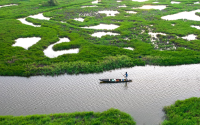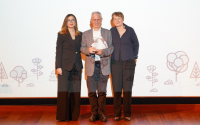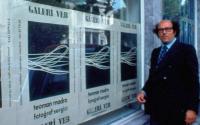11 September 2006Yahoo News!
European and Asian leaders, eager to show that together they can produce results on the world stage, were set to make a declaration about confronting global warming after the Kyoto Protocol on climate change runs out in 2012.
With the second day of their talks coinciding with the fifth anniversary of the September 11 terror attacks in the United States, they held a moment of silence in commemoration during the Monday morning session of the Asia-Europe Meeting (ASEM) in Helsinki.
The leaders and top officials from 38 Asian and European nations had earlier discussed common threats both their regions face, ranging from terrorism to pandemics and some of the more negative sides of globalisation.
On the second and final day of talks, they were to try to show that ASEM was not just a talking shop but a forum that can produce real benefits for their citizens.
Although their discussions have ranged widely from security, trade and workers' rights, a joint declaration on what to do about global warming after the Kyoto Protocol on climate change runs out in 2012 was expected to be the most concrete outcome of the summit.
"It is needless to say that climate change can have drastic consequences both for Europe and Asia," said Prime Minister Matti Vanhanen of Finland, which currently holds the EU's rotating presidency.
"We need to send a strong message about climate change and our common will to tackle this challenge," he said.
A senior official from Finland added that "the basic idea is to find a platform for work after 2012", the end of current commitments under the UN Kyoto Protocol on reducing greenhouse gas emissions.
The 25-nation European Union, both curious and cautious about Asia's growing role in world affairs, was hosting leaders from China, Korea, Japan and the 10 members of the Association of Southeast Asian Nations.
Widely seen as being long on talk and short on substance, the ASEM club is still trying to prove its relevance despite having 10 years of existence behind it.
The leaders agreed on Sunday to bring in new members with invitations to India, Mongolia, Pakistan, Bulgaria and Romania to join in future meetings.
Vanhanen said he was "convinced that this enlargement will not only widen, but also significantly deepen Asia-Europe relations."
European leaders called on their Asian counterparts to help stop workers being exploited and let them profit more from the globalisation that has helped turned Asia into an economic powerhouse.
"To maximise the benefits of globalisation and mitigate its potential adverse impact, there is a need to strengthen the social dimension," European Commission President Jose Manuel Barroso said.
After WTO trade negotiations acrimoniously ground to a halt in July, the leaders were expected to include in their final statement a call for the talks to be relaunched.
With 40 percent of the world's population, the two regions generate about 50 percent of global gross domestic product and 60 percent of world trade.
But the balance of trade is rapidly moving in Asia's favour, in particular due to the meteoric economic rise of China. EU leaders are also keen to rival powerful US influence in a region where a few decades ago several European states still possessed colonies.






